
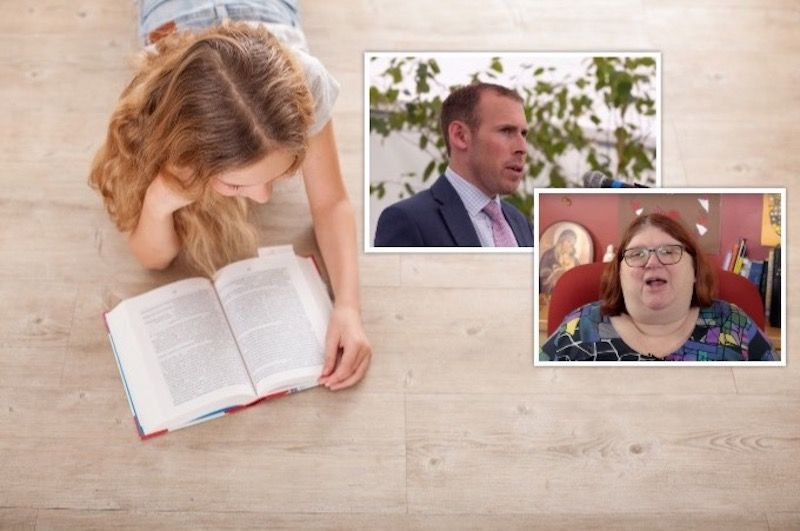

With early indications suggesting a possible decline in literacy standards, a review has been ordered across Guernsey schools.
Deputy Matt Fallaize announced the review during last week's States meeting - admitting that problems have been identified across key stage 1 and 2 in particular.
The President of the Committee for Education, Sport & Culture said data had suggested the drop in standards and work is being done to now to find out why it has happened.
“There are early indications of a possible decline in standards of literacy across key stages 1 and 2. This is based on the data provided by schools about pupils’ performance at the end of year 2 and the end of year 6. There has also been a substantial increase in referrals for additional support for literacy. Literacy is a key priority and the Committee has directed that a review into the possible decline in standards must be undertaken in the current school term. It will consider possible reasons and suggest solutions which can swiftly be put in place to reverse any declines.”
Deputy Fallaize doesn't want to detract from any of the good work being done in Bailiwick schools, but he is "mindful of where improvements are necessary".
“There is a lot of brilliant work going on in schools in the primary and secondary phases. We must always continue to celebrate these things. Most students have a positive experience of school and this is testament to the commitment of their teachers and school leaders. Equally, we have to be mindful of where improvements are necessary and have open and robust conversations about how best to secure those improvements. We are on a journey with a common overall objective: to maximise opportunity and excellence for every student regardless of their interests, social background or prior academic attainment.”
All data is shown in the graphs below:
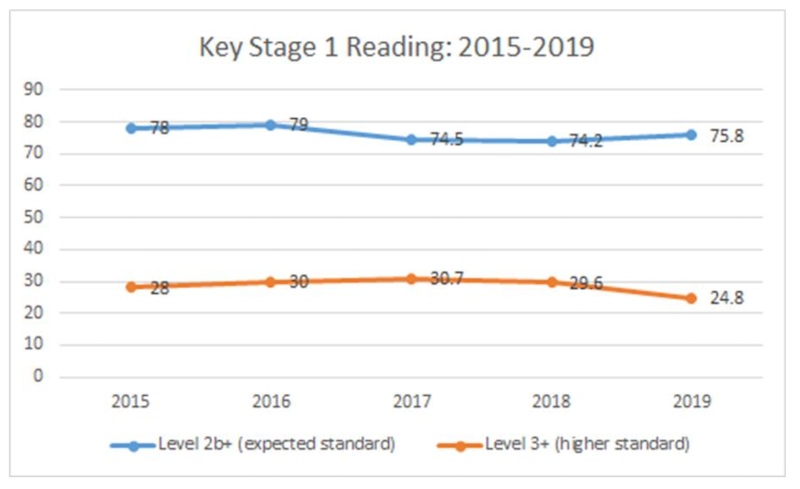
The drop in literacy standards has been noticed through previous pupil assessments, but ESC says teachers’ assessments of key stage 1 students, which are school years 1 and 2, currently show 'an improvement in the proportion achieving the minimum expected standard of reading but a decline for the second successive year in the proportion achieving the higher standard'.
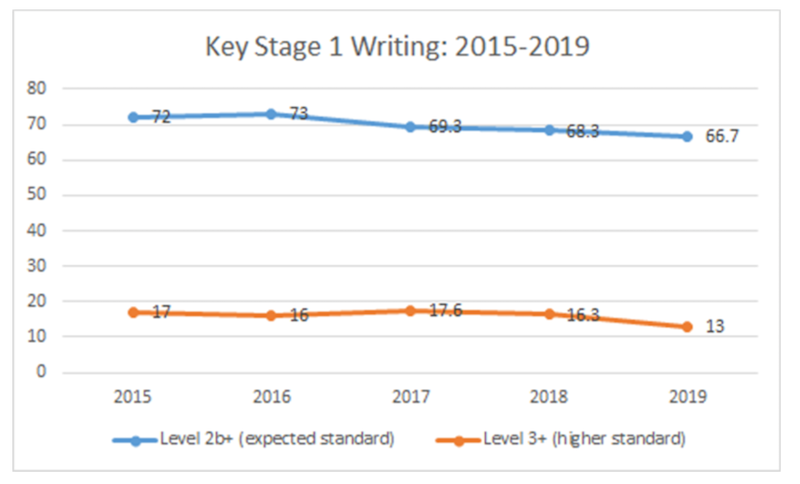
Standards of writing at key stage 1 also show a decline in each of the past three years.
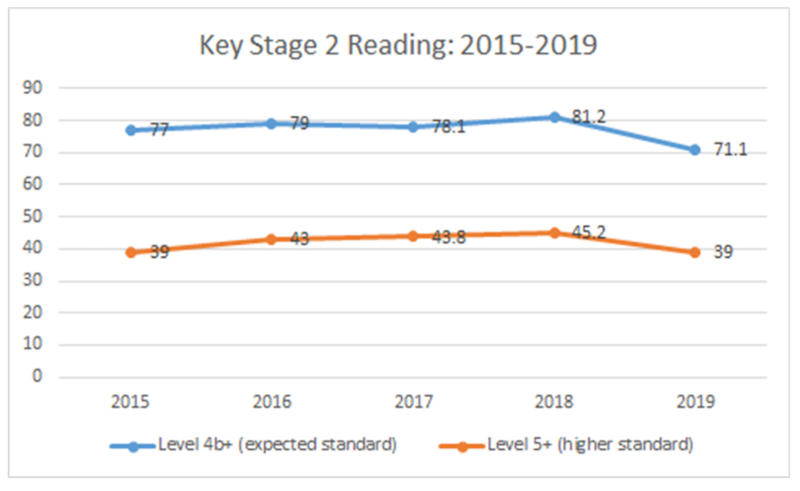
Teachers’ assessments of key stage 2 students (school years 3 to 6) for this year show declines in reading and writing.
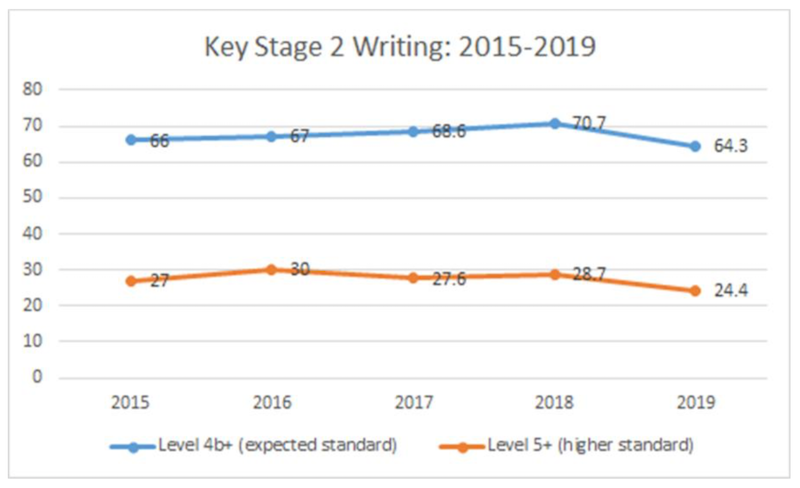
ESC says over the past four years there has been an increase of around 40% in the number of students identified jointly by the Education Office and literacy specialists as requiring additional literacy support.
In 2018 the Committee introduced a requirement for students moving from year 6 into a States’ secondary school to sit assessments which indicated that an 'unacceptably high proportion' of students entering secondary education have levels of literacy which 'do not allow them to access the full curriculum in key stages 3 and 4' (school years 7 to 11).
Those assessments are currently being sat by the current year 7 students, with provisional data indicating a slight improvement amongst students with the very lowest scores in 2019 but with 'much room for improvement'.
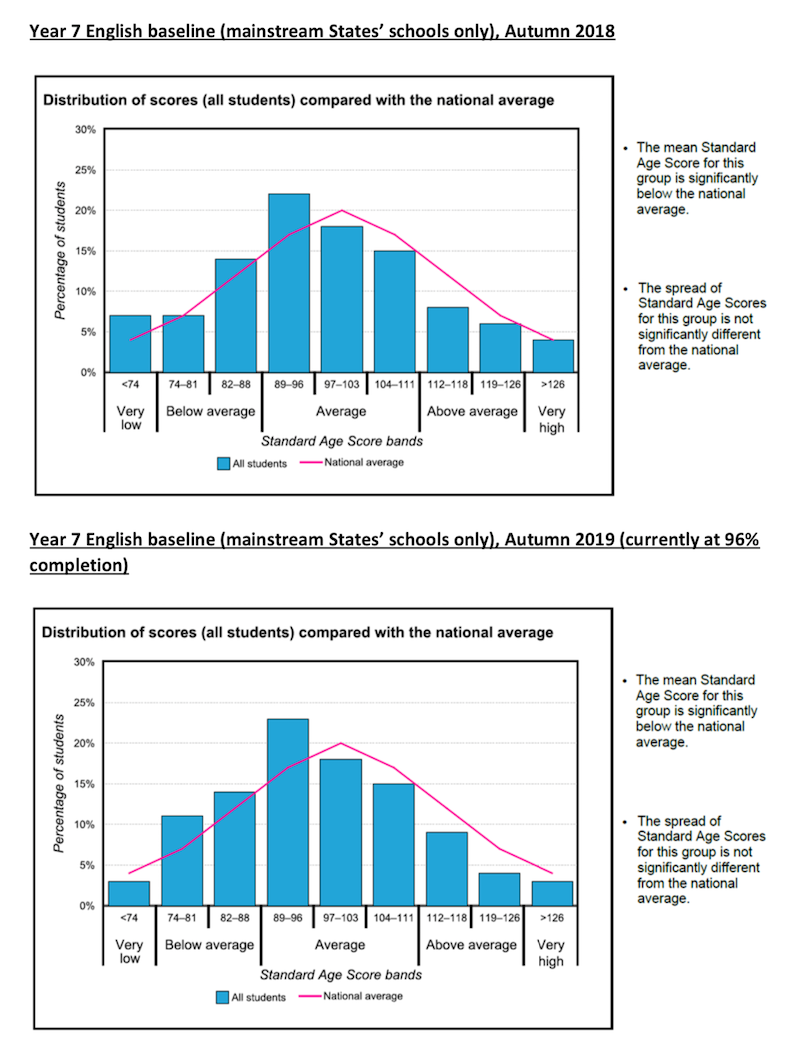
Since being elected last year, ESC says it has made or given notice of a series of reforms to the curriculum, assessments of students’ performance and the inspection of schools and various initiatives related to educational standards. These include increasing investment in literacy support in 2019 with further increases in investment to come in 2020 in both primary and secondary phases; improving how attainment and progress are assessed between key stages 2 and 3 and at the end of key stage 4; and adding more consistent and rigorous content to the curriculum. These reforms are being led at officer level by the Committee’s new Head of Curriculum and Standards, Clare Sealy. The findings of the literacy review, and any significant findings across other subject areas including maths and science, will be shared publicly in due course.
There are already a number of literacy interventions in place in primary schools. For example, the Reading Recovery Programme, initially funded by ECOF (Every Child Our Future) and now funded by the Education Office, has provided support for a large number of students working towards age-related expectations. This may have contributed to gains in literacy seen since 2011, but cannot provide a full explanation of the trend as an improvement and then a decline is also evident in the proportion of students achieving the higher levels, who would not have received any such interventions.
The literacy review will also work with school staff and other agencies to explore the various interventions that are in place across schools and review the evidence base supporting them to ensure that resources are directed towards those that are having the most significant impact.
Pictured top: Deputy Matt Fallaize and Clare Sealy.
Comments
Comments on this story express the views of the commentator only, not Bailiwick Publishing. We are unable to guarantee the accuracy of any of those comments.